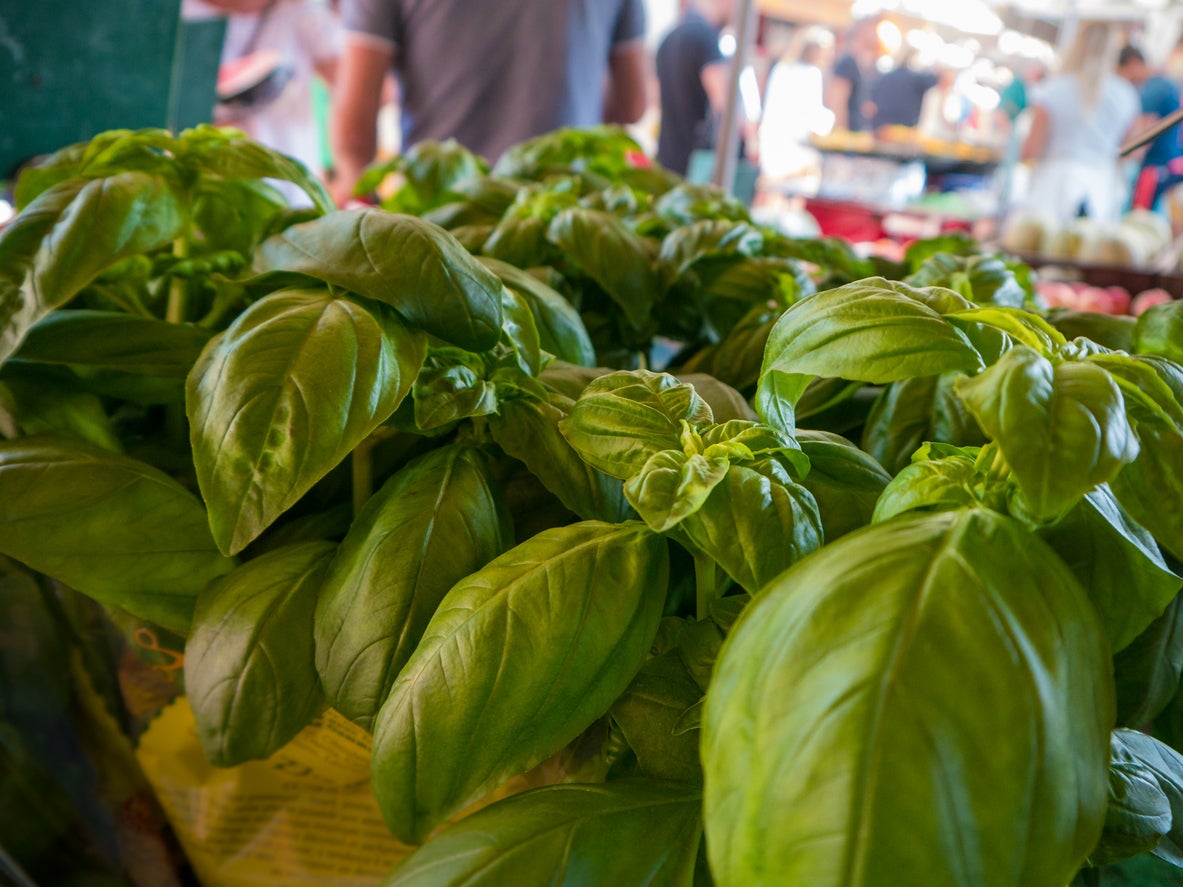Marseille Basil Info – Basil ‘Marseille’ Care Guide


Basil of any variety is a favorite herb of gardeners and chefs. One of the most important reasons we love this herb is its delectable fragrance. The French variety, Marseille, is among the most fragrant of them all. So, if you love the smell of basil, gather a little bit of Marseille basil information and get growing.
What is Marseille Basil?
Marseille is just one of many varieties of basil, and as the name suggests, it comes from France. It is sometimes called the ‘queen of fragrance’ because what it is most known for is its strong aroma. It smells sweet and slightly of licorice, much like other types of basil, but the fragrance is much more potent.
Marseille basil is also notable for its small, compact size. It grows densely with large leaves but only to a height of about 10 inches (25 cm.) and a width around 8 inches (20 cm.). The plant branches neatly without a lot of need for trimming or shaping and fills out the space well.
As a culinary herb, Marseille basil can be used as any other variety. It pairs well with tomatoes, pasta, mild cheeses, and vegetables. You can eat it fresh in a salad, use it in baked dishes, or dry the leaves to store and use later. The flavor is a little sweeter than other varieties, but it is still an acceptable variety for any recipe that calls for basil. In France, Marseille basil is traditionally used in pistou, a sauce similar to pesto.
Growing Marseille Basil
When it comes to container-grown basil, Marseille is an obvious choice. The plant grows compact and dense. You’ll get an abundance of full-sized leaves even from a small plant in an indoor or outdoor container. Due to its compact nature and dense growth, this is also a good plant for edging and borders in the garden. Of course, it is also great in gardens or containers simply to add a delicious aroma to any space.
Wherever you grow it, Marseille basil care is pretty simple. You can start seeds indoors and they should germinate in five to ten days. With two sets of true leaves, they should be ready for transplanting to a bed or container.
Make sure they have plenty of direct sunlight and warmth. If in a container, be sure it drains, and of course, outdoor beds should have good drainage too. Water your plants regularly to keep the soil moist but not waterlogged. Basil does best in rich soil, so add compost or fertilize if needed.
Gardening tips, videos, info and more delivered right to your inbox!
Sign up for the Gardening Know How newsletter today and receive a free copy of our e-book "How to Grow Delicious Tomatoes".
Marseille basil will grow densely without much attention, but to encourage shape and prevent flowering, pinch off growing tips.

Mary Ellen Ellis has been gardening for over 20 years. With degrees in Chemistry and Biology, Mary Ellen's specialties are flowers, native plants, and herbs.
-
 Looking For Plants To Give You The Soft And Fuzzies? Try These 5 Fuzzy Leaf Plant Options
Looking For Plants To Give You The Soft And Fuzzies? Try These 5 Fuzzy Leaf Plant OptionsLovers of texture, drama, silver foliage and tactile plants will adore these special sensory garden additions. These fuzzy leaf plant options will leave you all aglow
By Susan Albert
-
 Get Ready For A Summer Of Hummers! Grow These Full Sun Hummingbird Plants and Flowers
Get Ready For A Summer Of Hummers! Grow These Full Sun Hummingbird Plants and FlowersIf you’re lucky enough to enjoy a sunny backyard, make sure you are maxing out on your pollinator opportunities and grow these full sun hummingbird plants and flowers
By Tonya Barnett